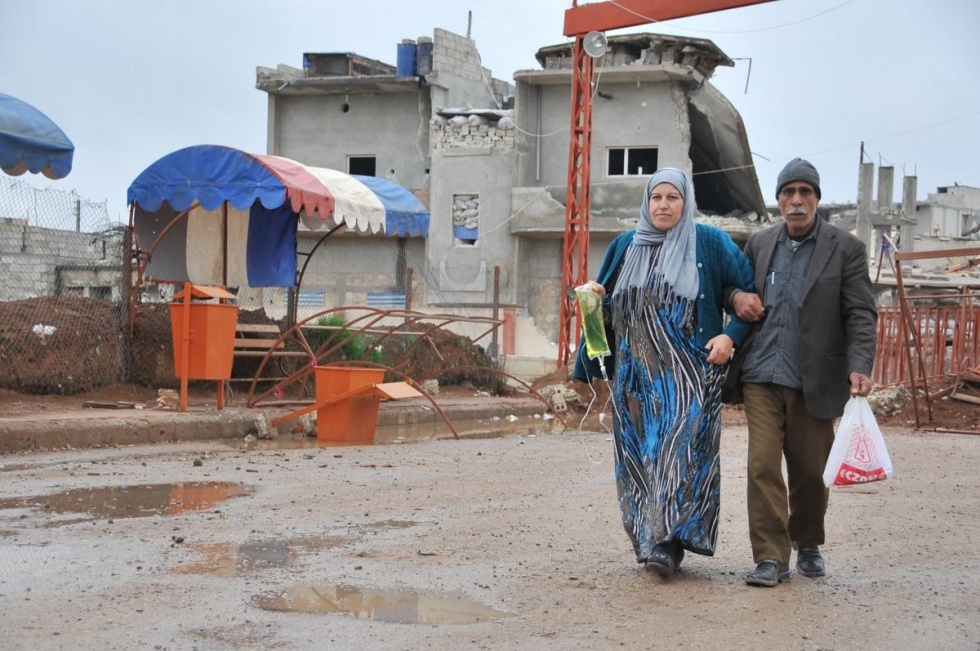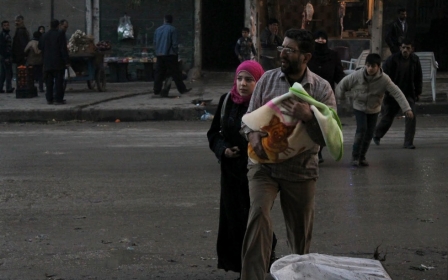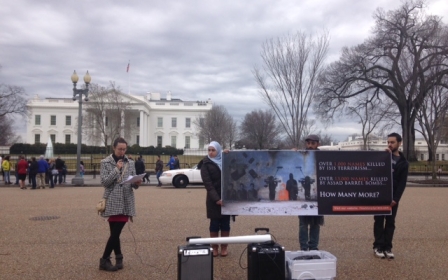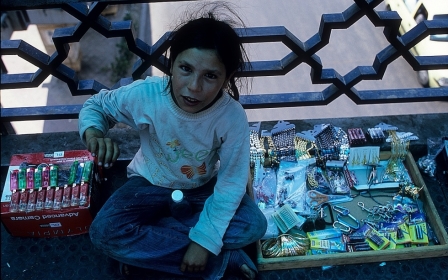Mortgaging Syria’s future

Four years after the beginning of the Syrian uprising, now largely turned into a civil war and a proxy regional conflict, the state of Syria’s economy and society is dire.
A recent report, produced by the Syrian Centre for Policy Research, a Damascus-based organisation, with support from UNDP, puts numbers on this disaster.
In the past four years, the Syrian economy is estimated to have lost more than $200bn, or the equivalent of four times its gross domestic product the year before the uprising; unemployment is estimated to be above 57 percent, from 11 percent in 2010; four out of five Syrians now live in poverty; and, in the space of only four years, life expectancy has fallen from 75 to 55 years.
Some business sectors have been almost totally decimated, such as tourism and oil production, while manufacturing, which has suffered from tremendous destruction, theft and looting, is only worth a fifth of its value prior to the uprising.
This destruction is accompanied by profound changes affecting Syrian society including a massive migration of both financial and human capital, dramatic demographic shifts, a fragmentation of communities and social ties, a rise in criminality and a deep sense of loss of dignity.
In addition to the consequences of the conflict that are already felt, others have serious implications for the long term and are already mortgaging future recovery efforts.
The Syrian government, now largely unable to fund itself, is accumulating an increasingly significant debt in order to import oil products and grain, to pay the salaries of its civil servants and, mostly, to fund its war effort. Someday, this debt, both domestic and foreign, including from countries such as Iran, will have to be paid back by the Syrian people, on top of the massive financial effort that will be required for a reconstruction drive.
Physical assets that have been destroyed, including productive capacity such as factories, machinery, power plants, irrigation canals, tourist sites and residential buildings, will require a very long time to be restored given the decline in the financial capacity of the government and capital flight.
Many of the most prominent Syrian businessmen have now relocated across the region and in some cases they have started to play an important role in their host countries. In Turkey for instance, more than 25 percent of companies opened last year by foreign investors were by Syrian businessmen. Having invested money, built a workforce and opened new markets, many will find it difficult to return when the war ends.
Even more worrying is the disappearance of the Syrian middle class. Business managers, academics, doctors, engineers and professionals of all other specialities have found refuge in Europe or in the Gulf. Having established themselves in these new countries and in need of clear long-term prospects, they will be the most difficult to entice back. With their departure, Syria has lost a significant amount of accumulated human capital, which will need decades to recover.
One other burden for Syrian society will be to undo the many new activities and networks that have sprung up with the retreat of the rule of law and the decline of the central state. Massive interests have been built up around the war economy amongst the warlords, and the networks and the institutions it has created. This too will be difficult to reverse.
Finally, geographic and political fragmentation is becoming increasingly entrenched, breaking down traditional economic and trade networks. Many of what were temporary and shifting front lines have now become quasi-borders between different parts of the country. The division of the city of Aleppo since the summer of 2012, between a western part controlled by the government and an eastern part controlled by the opposition, is one of the best examples of this.
Another is the north of Syria, which is one of the most fragmented parts of the country, with the government, the Kurds, the Islamic State, the Nusra Front and various brigades affiliated to the Free Syria Army sharing territorial control. As almost all production has stopped in that region, it has largely turned to Turkey, rather than to other parts of Syria under government control, for the supply of essential goods. As a result, Turkish exports to Syria last year were close to their record level of $1.8bn reached in 2010.
This shift, together with the rising foreign debt, highlights the growing dependency of the Syrian economy towards external actors.
Given the magnitude of the Syrian catastrophe, it seems difficult to see any light at the end of the tunnel or to offer any policy advice other than asking for an immediate end to the fighting, a prospect that seems as far away as it has ever been since the uprising began.
To an important extent, the Syrian uprising was a revolt of the most fragile, disenfranchised and poor segments of its society. Four years after their cry for change, these parts of the Syrian population are also those that have paid the heaviest price of the war and have only become poorer, and more fragile and distressed. On today’s anniversary, there is very little to celebrate and, unfortunately, very little to hope for.
- Jihad Yazigi is a journalist based in Beirut. He is the editor-in-chief of The Syria Report, an online economic bulletin specialised on the Syrian economy that he founded in 2001.
The views expressed in this article belong to the author and do not necessarily reflect the editorial policy of Middle East Eye.
Photo: A woman walks towards the temporary medical centre with a serum in her hand in Kobane, Syria on March 12 (AA)
New MEE newsletter: Jerusalem Dispatch
Sign up to get the latest insights and analysis on Israel-Palestine, alongside Turkey Unpacked and other MEE newsletters
Middle East Eye delivers independent and unrivalled coverage and analysis of the Middle East, North Africa and beyond. To learn more about republishing this content and the associated fees, please fill out this form. More about MEE can be found here.





